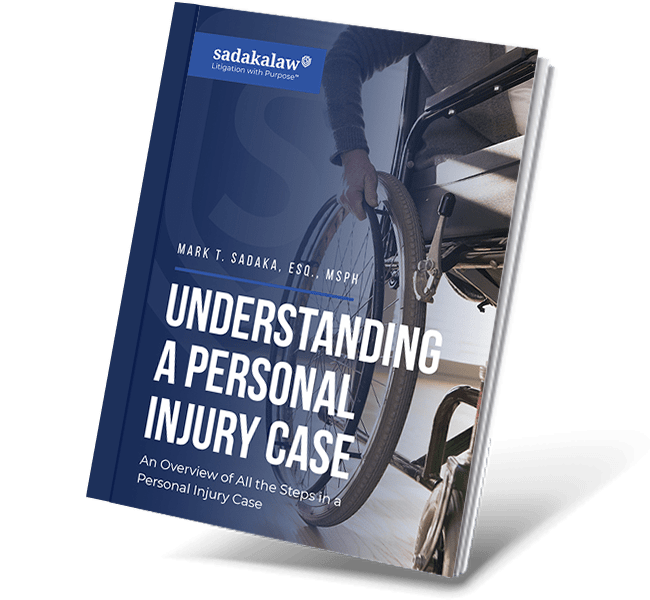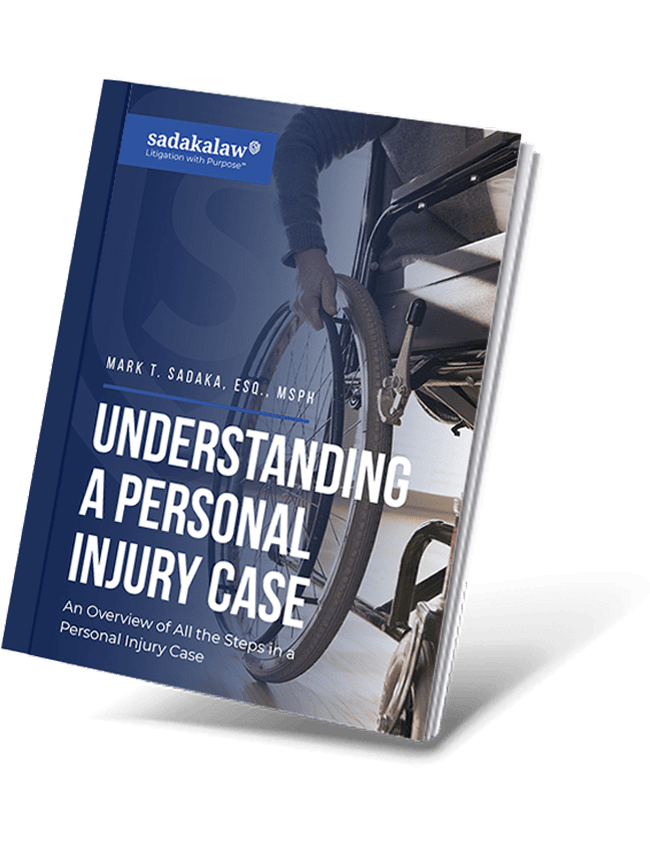While motorcycles do provide riders with plenty of enjoyment and freedom, they also come with a higher level of risk. Their relatively small size means that they are no match for most of the other vehicles on the road. This significantly high risk is why helmets are such a necessity.
While wearing a helmet can go a long way in increasing your chances of surviving an accident, you could find yourself involved in an accident without a helmet. Some motorcyclists wonder whether they can still file a claim in New Jersey should they get injured in such a scenario.
What Is New Jersey’s Motorcycle Helmet Law?
Helmet laws vary depending on the state you are in. Before you can know whether you have a valid claim when you get into a motorcycle accident without a helmet, you must first understand New Jersey’s helmet law.
New Jersey law requires all motorcycle riders and passengers to wear their motorcycle helmets. The helmet must securely fit your head and must also have a strap that you can wrap around your chin or neck.
The law also requires that the sides of your helmet be reflective to improve your visibility. On top of this, the helmet you wear must also comply with the U.S. Department of Transportation’s safety standards.
One way to determine whether your helmet complies with federal safety regulations is to look for a sticker that reads “DOT FMVSS No. 218 CERTIFIED.” The presence of this sticker means that:
- The outside of your helmet has a strong, sturdy, hard shell
- Your helmet has an inner lining that consists of solid polystyrene foam and is one inch thick
- Your helmet’s chin strap is securely riveted in place
- The helmet weighs approximately three pounds and is more likely to offer you the protection you need
- Your helmet has a foam layer between its interior and the outer shell
Common Causes of Motorcycle Accidents
While motorcycle accidents can be caused by some of the same reasons that cause other accidents, some factors are unique to motorcycle accidents. The following are some of the common causes of motorcycle accidents.
Manufacturing Defects
Manufacturing defects might either cause accidents or make the motorcycle more vulnerable in the event of an accident. There are different types of defects, such as leaky fuel tanks, faulty brakes, or wobbly tires.
Lane Splitting
Also called white-lining or lane-sharing, lane splitting is when you ride your motorcycle between two adjacent lanes of traffic moving in the same direction.
While doing so might reduce the number of accidents on the highway, you could get into an accident when a driver fails to look for motorcyclists who are lane splitting. In such a case, the car might hit your motorcycle because of your proximity.
Driver Error
There are several examples of driver errors that could lead to a motorcycle accident. Some of them include:
- Speeding: According to research, almost a quarter of all fatal motorcycle accidents involve unsafe speeds.
- Distraction: Many things could distract motorists, including using their phones, toying with their radio, or using the GPS.
- Failure to Check Blind Spots: Trucks and cars have many blind spots that motorcycles can fit into. Should a driver fail to check their blind spots before changing lanes or turning, they could cause serious accidents.
Poor Road or Weather Conditions
Poor road conditions or bad weather like fog, rain, snow, and strong wind can cause accidents. Though there is no one to blame in some cases, you might still be found at fault if the court finds that you were riding your motorcycle in a way that is not appropriate for the conditions.
Can You Receive Compensation If You Get Involved in an Accident While Not Wearing Your Helmet?

While New Jersey has a no-fault law, unfortunately, it does not cover motorcycle accidents. This means that you won’t have recourse to your insurance if you need coverage for medical bills and other expenses.
However, the state has a comparative negligence rule that might enable you to seek compensation even if you weren’t wearing your helmet at the time of your accident.
What Is New Jersey’s Comparative Negligence Rule?
According to New Jersey law, you can only receive damages and compensation in a personal injury case depending on the standard of comparative negligence. This means that the total damages you will be able to receive will be determined by subtracting the amount of negligence the jury attributes to your actions.
How Comparative Negligence Is Applied in Motorcycle Accident Claims
In New Jersey, the threshold for comparative fault is 50 percent. This means that if you and the other motorist are equally responsible for the accident, you can recover up to one-half of the injuries and damages you sustained.
When calculating the level of negligence on your part, the location of your injuries will play a crucial role.
Scenarios That Might Validate Your Motorcycle Accident Claim
While the existence of New Jersey’s Helmet Law deems operating your motorcycle without wearing your helmet an unlawful act, the law doesn’t automatically assign liability of the accident to the helmet-less motorcyclist. The primary consideration the law makes in such a case will come down to who was more responsible for your injuries as the motorcyclist.
That being said, determining who is more responsible for your injuries might be a challenging task to do. After all, wearing your helmet can reduce the risk of suffering several different injuries, including:
- Lacerations to your neck and face
- Eye injuries
- Injury to the soft tissues in your neck, such as tendons and ligaments
- Fractures of the skull, jaw, bones in your face, and vertebrae in your neck
- Traumatic brain injuries
However, since wearing a helmet cannot prevent all injuries, the following are some of the scenarios that will be considered when assessing the likelihood of recovering compensation:
- You did not suffer any head or neck injury.
- You suffered head and neck injuries.
For example, let us say you were riding your motorcycle without your helmet when another motorist swerved into your lane and hit you. If you suffer a broken ankle, broken arm, and road rash, you could have a valid personal injury claim against the motorist. On top of that, you might have a good chance of receiving compensation.
In the example above, the use of your helmet would not have prevented the injuries. As a result, the negligence on your part would be minimal.
However, if you were to suffer head and neck injuries in the same accident, pursuing your personal injury claim would be a lot more challenging.
The motorist’s insurance company could easily argue that by violating the law and failing to wear your helmet, you bear a significant amount of responsibility for your injuries. In such a case, comparative negligence will reduce the amount of compensation you would be able to recover. It might even go beyond the threshold where compensation can be received at all.
Summing Up

The New Jersey law requires all motorcycle riders and passengers to wear a helmet. Besides complying with the law, wearing a helmet is also vital for your safety. According to studies, riding a motorcycle while not wearing a helmet can increase the risk of death by more than 40%. On top of that, riders who do not wear a helmet are up to three times more likely to suffer traumatic brain injuries should they be involved in an accident.
While we recommend that you always wear your helmet while riding your motorcycle, the law still protects you if you get involved in an accident while not wearing one.
In most cases, insurance companies will try to pressure you into settling for as little compensation as quickly as they can. Sometimes, the insurance adjuster could claim that you caused the accident by riding your motorcycle without your helmet.
However, as we have seen, even if you were riding your motorcycle without your helmet, you might still have grounds for filing a personal injury claim and suing the liable party. The only caveat is that New Jersey’s Comparative Negligence Act will apply, reducing the amount of compensation you could receive.
Find Out If You Have a Valid Motorcycle Accident Claim
Motorcycle helmets are designed to save lives, and that is why several states, including New Jersey, have established laws that require the use of helmets when riding motorcycles.
Though it is more challenging to recover compensation when you are involved in an accident when not wearing your helmet, it is nonetheless essential to have a complete understanding of all your legal rights and options. This is where the Law Offices of Sadaka Associates come in.
We are ready to help with your case. Our lawyers understand motorcycle accident cases and are prepared to offer you the legal representation you need.
Contact the Law Offices of Sadaka Associates today at 1-800-810-3457 for your free, no-risk consultation and receive the legal help you need to navigate your case.


